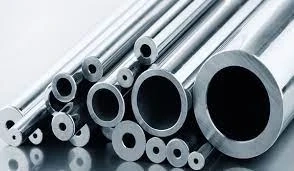Alloy 20 is an austenitic chromium-iron-nickel alloy with excellent corrosion resistance in chemical environments. It contains sulfuric acid and a variety of aggressive media. The alloy is stabilized with niobium, which aids in resistance to intergranular corrosion. Alloy 20 outperforms standard stainless steel and can help provide potential cost savings when compared to higher nickel-based alloys.
USES OF ALLOY 20 PIPE:
APPLICATIONS AND INDUSTRIES
Alloy 20 is used in a wide range of industries, including food processing, pharmaceuticals, marine, petrochemical, refining, and chemical processing. Pumps and valves, fasteners, food processing equipment, fittings, agitators, mixing tanks, and storage tanks are also examples of end-use applications.
According to ASME, applications are limited to a maximum temperature of 1000°F. It is also critical to determine whether you can achieve the required corrosion resistance within the given environment.
CORROSION RESISTANCE
Alloy 20 has a high resistance to sulfuric acid. It is also resistant to an aqueous salt solution, nitric acid, and phosphoric acid. If chloride stress corrosion cracking is a problem, Alloy 20 Pipe is an excellent choice. The reason for this is that it aids in the resistance of crevice and pitting, which increases durability. When dealing with chloride ions, you must exercise extreme caution because the corrosion rate can rapidly increase.
HEAT TREATMENT AND FABRICATION
Alloy 20 can be formed using traditional cold-work or hot-work methods. Hot forged material requires careful temperature control between 2100°F and 2250°F. It also ensures that the temperature of the material does not drop below 1800°F before forging. After hot working, anneal the materials for a minimum of 30 minutes per inch of thickness at 1725°F and 1850°F, followed by a water quench.
When stress relief is required, reduce the temperature to less than 1000°F and then quench with water. It can happen after a certain amount of time has passed and a specific temperature has been established. Alloy 20 must be annealed at temperatures ranging from 1725°F to 1850°F for 30 minutes per inch of thickness.


